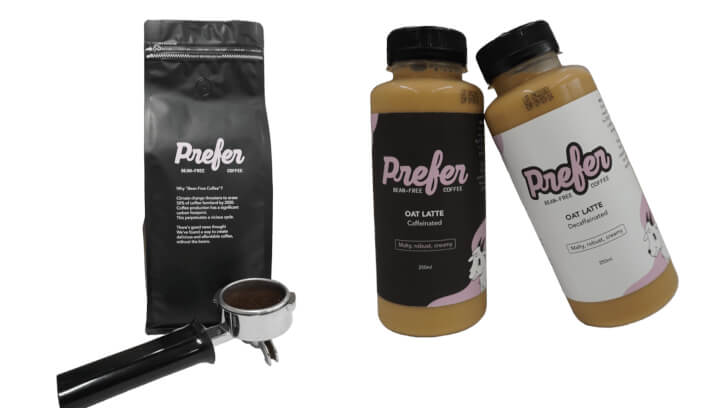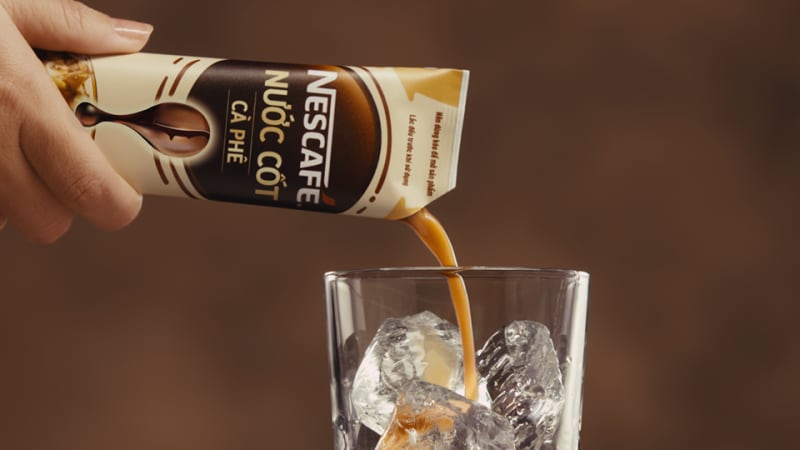Prefer has utilised fermentation technology similar to beer brewing to create its Asia-first bean-free coffee, made from upcycled materials from food manufacturing processes.
This includes day-old bread from Gardenia, okara from Mr Bean and spent barley grains from various Singapore-based breweries.
All of these are blended, fermented, roasted and then ground, taking a total of around 48 hours to complete the production of one batch.
It removes the need for an annual coffee harvest and an average five years for new trees to bear an initial crop.
The firm says it also offers costs and customisability benefits.
“We’re currently still focused on arabica coffee, which has a more premium price generally, so we are able to offer a more affordable option in both coffee grounds to be used in espresso machines as well as RTD cold brew versions,” Prefer Co-Founder Jake Berber told FoodNavigator-Asia at the firm’s recent official launch event.
“It is also important to note that with some 50% of the land used for planting coffee today is unlikely to continue being used for this in the future due to climate change. There is a clear pattern that supply will go down.
“This would be further exacerbated by increasing consumer demand for coffee, which is expected to triple in the near future, driven by markets such as India and China that are increasingly seeing coffee to be cool and hip.
“What this means is that the price of coffee is going to increase and keep increasing – and alongside climate change continuing to wreak havoc, this means that the mass population may likely be priced out of conventional coffee in the future, so bean-free coffee could be the commodity of the future.”
For now, the firm is focused on making the bean-free coffee as coffee-like as possible, as well as scaling up production having just completed its US$2mn seed round.
“As we move forward and scale up from producing kilogrammes to tonnes a month, then we will be looking at developing alternatives for 3-in-1 coffees and instant coffees – there are also plans for making bean-free capsules which are compatible with Nespresso machines too,” Berber added.
“As such, we’re initially still working more on a B2B model with foodservice, hotels and the like where the demand is strong, but as the demand grows from consumers we will certainly develop more compatible products for B2C as well.”
Coffee customisability
For this year, Prefer has set its sights on the wider Asian market starting with Singapore and the Philippines.
“Singapore is a good test-bed to understand the South East Asian palate, and we have received a lot of local support too,” Co-Founder Tan Ding Jie added.
“We are also looking at the Philippines for expansion as we feel that the product would work well there in terms of both the palate as well as the caffeine content customisability.”
During the fermentation process, the Prefer product can be customised in various ways from the caffeine content to the coffee notes and more.
“Our fermentation uses food-grade, non-GMO microorganisms including bacteria, yeast, and fungi to break down the upcycled ingredients for nutrients, and during this we can also control quality and safety closely,” Tan added.
“This means that the original grounds are caffeine-free so we can customise the final caffeine content from zero to double or more the usual amount using caffeine from green tea; as well as potentially creating flavours replicating coffee profiles from many sources from Columbia to Ethiopia and more.”



